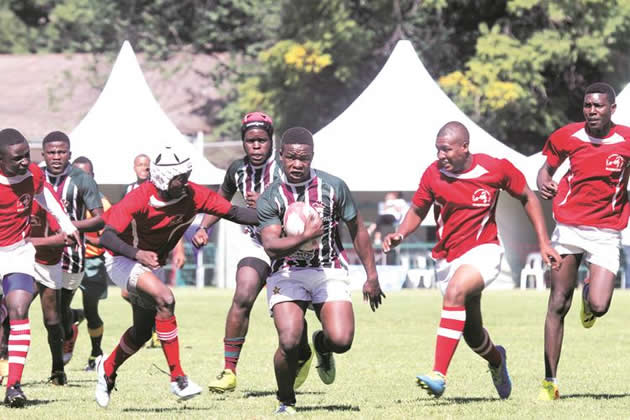When beauty is more than skin deep

Ruth Butaumocho Gender Forum
Miss World Zimbabwe was held over the weekend with 25-year-old Emily Kachote walking away with the coveted prize, shrugging off stiff competition from 14 other contestants.
However, her crowning was preceded by heated debate on social media after Miss Zimbabwe Trust chairperson Mary Chiwenga lambasted the Miss World pageant alleging that it was nothing more than a racist platform that did not promote black beauty.
Her outburst confirms what the majority of Africans -Zimbabweans included – have always suspected that racial origins have always been the biggest trump card in this highly publicised international beauty pageant.
With nothing written in black and white, Miss World has long been considered to be truly a white girl’s affair, intermittently dotted with consolatory slots for women of colour and in very rare circumstances, black sisters, who are sometimes crowned first and second princesses to give leverage to this international pageant, facing a myriad racism allegations over the years.
Since its inception in 1951, only one African black contestant, Nigerian Agbanai Darego, has been able to clinch the title, making her the first black Miss World, a feat she achieved on African soil in Sun City, South Africa.
Since then it has been a challenge for any African black girl to attain the same status, although most countries on the continent continue to send representatives to this highly prestigious event.
Prior to Agbani’s crowning, none of the black African girls who had contested before had been lucky enough to edge closer to the title.
The closest they had been to the title was when they attained first and second positions.
In fact, it was two black women – Jennifer Hosten of Grenada and Pearl Jansen of South Africa – who broke the record in the 1970 Miss World by coming first and second princesses, something that had never happened before at a major international pageant.
Since then, all the black girls contesting in the pageant have been going there to merely make up the numbers and spread the level of representation, rather than competing for the title, because history has shown their chances of winning are slim.
Besides being judged on the natural beauty, contestants to Miss World have to score highest points, awarded for a range of activities and events which take place from the moment the contestants arrive at the venue of the competition.
Six challenge events that take place in the run-up to the finals include beach fashion, beauty with a purpose, multi-media sports, talents and top model, where contestants have an opportunity to shine and embrace an array of judges.
Suffice to say, save for Agbani, what it means is that none of the black contestants have managed to fit into the Miss World template or, better still, bridge the basic bar of attributes needed for one to qualify.
If anything, history has shown that black contestants have to work twice as hard to get noticed and they rarely make it to the top three. More often than not, they have to settle for a host of arbitrary titles and consolation prizes such as “Miss Talent”, “Miss Bikini” and, of course, Miss Personality of the “Face of Africa”.
After all, when they go there they are nothing more than the Face of Africa, a slot that has to be maintained to validate fair representation across races and continents.
At the risk of being called a pessimist, the Miss World beauty pageant has proved to be too elitist for the black girl to put her hopes and aspirations in, never mind the racist slurs that have dragged several contestants in controversy.
African countries continue to spend millions grooming the girls and raising their hopes knowing very well that their chances of being crowned Miss World are almost next to nothing.
Year in, year out, pageant organisers spread across the continent, hold several deportment and grooming camps for these girls, when it is clear that beauty remains merely skin deep.
Of course, beauty enthusiasts might find my assessment far-fetched but even former contestants have cried foul, alleging serious fraudulent judging procedures, which favoured white girls.
Similar allegations have also been raised at Miss Universe, a highly prestigious event, which also attracts over one billion viewers across the globe whenever it is beamed live.
Writing for HealthyBlackWoman.com Nomalanga Mhauli-Moses, who is a former beauty pageant for Botswana, said when she attended the Miss Universe 2013 she was shocked that there were three judges from Indonesia and none from Africa, even though the continent had more than 30 contestants.
She said although the crown could have been won by Miss Ghana, who was the crowd’s favourite and was very distinct in every respect, including possessing physical attributes that fitted well into the pageant’s template, the prestigious crown went to Miss Philippines.
Representatives from different African countries have raised similar concerns, and yet they continue to send contestants to the very same platforms they abhor.
Of course, one cannot run away from the fact that Miss World is a strong commercially driven event, followed by millions of business people across the globe and receives media coverage from all major outlets, making it one of the most accessible platforms to market one’s country, product or business.
However, good as it might sound, Miss World beauty pageant is not adding value to the aspirations of an ordinary black girl who remains excluded because of her skin colour.
African countries that have been dismally disappointed by the goings on should now come up with a pageant that meets the continent’s aspirations.
It should be a pageant that boosts confidence among the participants, makes them appreciate that beauty is not only about high cheek bones and fair skin but it is also about curvy, well rounded and brainy girls.
Once set up, the beauty should also promote the diversity of the continent while marketing it and creating employment opportunities.







Comments